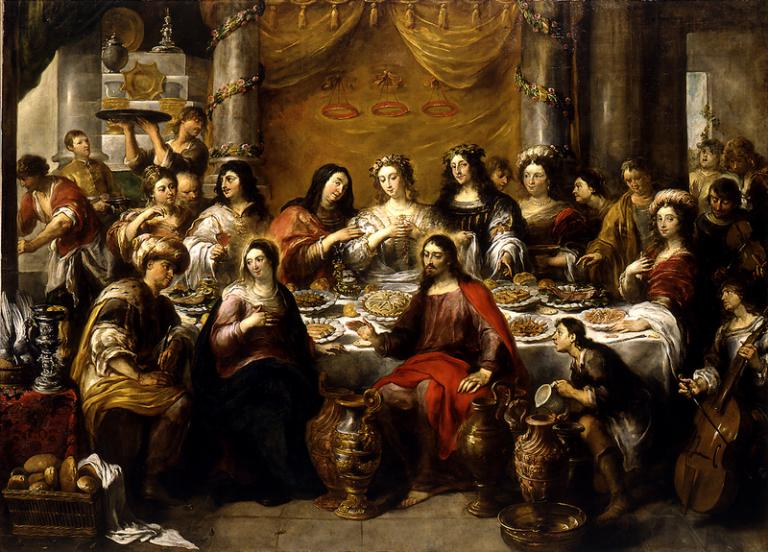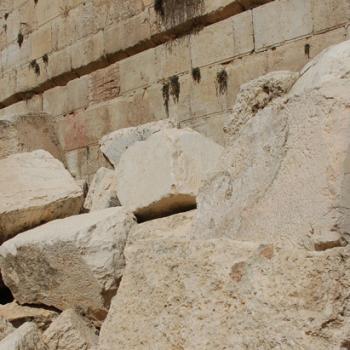This is an excerpt from a short book I have drafted, The Shameless Gospel © 2019
Chapter 4: A Woman Without Shame
Not too many years before the prophet John was born, the Spirit breathed something even more wondrous into the world than a boy born to a seemingly-post-menopausal mother. The Spirit breathed into a girl the perfect knowledge of good and evil that had eluded her ancestors, “Eve.” This girl experienced every other limitation of the human condition, but she would not accept the attribution of shame to her limitations. And that simple rejection of external shame would make all the difference in the world.

With this perfect clarity in her psyche about what true justice and righteousness are—that is, fullness of wisdom—she could dismiss the social constructs of shame that swirled around her, and the negative consequences of that shame. She could avoid the temptation to use lies or violence or greed to increase her power, though many people around her might seek to surmount their own limitations by taking unjustly from others. She could reject the notion that her menstruation was a source of shame and that bearing children for her husband was necessary to take away her shame. She could move freely through the land, unconcerned about whether a male guardian was approving or protecting. Ironically, or perhaps iconically, this extraordinary girl was called Miriam, as so many other girls around her were, which is thought to mean “bitter” or “rebellious” in its Hebrew origins.
Because she held no shame in her heart, this girl could freely say Yes to an extraordinary request. I AM sent a spirit messenger to her and asked if she would become the mother of the long-awaited Redeemer for her people. This would be an immensely honorable assignment if it weren’t for the strange way proposed for inaugurating her motherhood: not by intercourse with her husband, once her betrothal was publicly consummated as marriage, but by the ex nihilo creative power of the Spirit. And this would happen at a time when it was illicit for her to have sex with any man. In other words, to become pregnant at this particular time would bring crushing shame upon her according to the law (even potentially death by stoning, depending on her presumed sexual partner). Not only upon her, but also upon the man to whom she was betrothed, unless he had her executed or confirmed himself as the father.
Miriam neither feared the societal shame that would be heaped upon her, nor doubted that the providential care of her God would save her and her baby from destruction according to the law. She said Yes, and then made haste to give aid to her elderly pregnant cousin, whom the messenger had mentioned was pregnant with the prophet John. Miriam herself prophesied, as did her cousins, about the truth of God’s goodness. And indeed, God secured her safety by telling her fiancé in a dream that she was not an adulterer; that he should claim to be the licit father even though he knew this was not the physical reality.
Only a woman untouched by shame could handle raising God-made-flesh from infancy to adulthood. Her people believed that the tangible presence of God was hidden behind a thick curtain in the Temple Sanctuary, only rarely accessible to a chosen few, and anyone else would be struck dead for daring to approach. They would not even say the name of G-d out of respect. “Depart from me, for I am full of shame” said those to whom God revealed Himself, from Isaiah to Peter. But this woman would have to tend to the circumcised penis of the Son of God, and wipe poop from his behind! She would be blamed for his outlandish behavior when he grew to be a trouble-making, unmarried itinerant preacher. She would watch him die the most ignominious of deaths… but here we get ahead of the story.
When her son was only 12, Miriam lost track of him for three days in the metropolis of Jerusalem. Any other mother would have been consumed by guilt and shame as she frantically searched for her peri-pubescent child. But when she found him, Miriam did not apologize, but rather questioned him as to why he had caused her pain and sorrow by his absence. His answer was enigmatic to her at the time, so she simply held it in her heart as a treasure, without any hint of shame about the limitations of her understanding or motherly watchfulness.
It wasn’t as if Miriam was naïve about social propriety or heedless of it. She observed the ritual cleansing after her son’s birth, for instance. (At that time, she received prophesy of how her son would be opposed for causing both ruin and resurrection for the chosen people of Israel, and her own psyche would be pierced with grief, so that the self-serving character and prejudicial reasoning of many would be revealed.) And some three decades later, she perceived quite clearly the shame that running out of wine at a wedding feast would cause for the newlywed couple who had invited her. So she prevailed upon her son, who she now realized could supersede the limitations of the natural world, to wash away their shame by miraculously providing good wine. She had no shame for herself, impudently ordering around someone else’s servants, but she was solicitous of preventing the shame of her neighbors.
Miriam took no offense when her son contradicted someone who declared that she, in particular, was blessed and privileged for giving birth to him; when he said that the true privilege was to understand correctly God’s logic and observe it. Neither did she pester her son to conform to the societal expectation of taking a wife, or pine for grandchildren to bring her honor. She stood by the ministry of her son, no matter how much the community leaders condemned and despised him, and by extension, her. She kept standing at his side, his indignity every bit her indignity, when he was condemned by their religious leaders for blasphemy, sadistically tortured, marched bleeding through the streets of Jerusalem, and subjected to the most painful and humiliating death conjured up by Imperial Rome. In love, she shared his pain and sorrow, but not his shame.
Miriam’s full possession of wisdom, of the knowledge of good and evil, and her observation of God’s logic, had implications for death as well. The mysterious origin story of the Israelites contains a profound truth: human beings with a defective sense of good and evil, formed by covetousness and social pressure instead of God’s Word, could not be allowed to live forever. They do too much damage to the world, so God put a limit on that. At the death of the anima soul, the human psyche, though eternal in nature, would need to be fully detached so that it could no longer touch the material world with any evil intent the psyche may harbor. But Miriam’s perfected psyche presented no such risk; indeed her continued influence on the material world would be a blessing to all. So when she reached the end of her material lifecycle, her anima and psyche were not detached, and her animated presence can still be discerned in the world in serendipitous moments, even to the present day.












